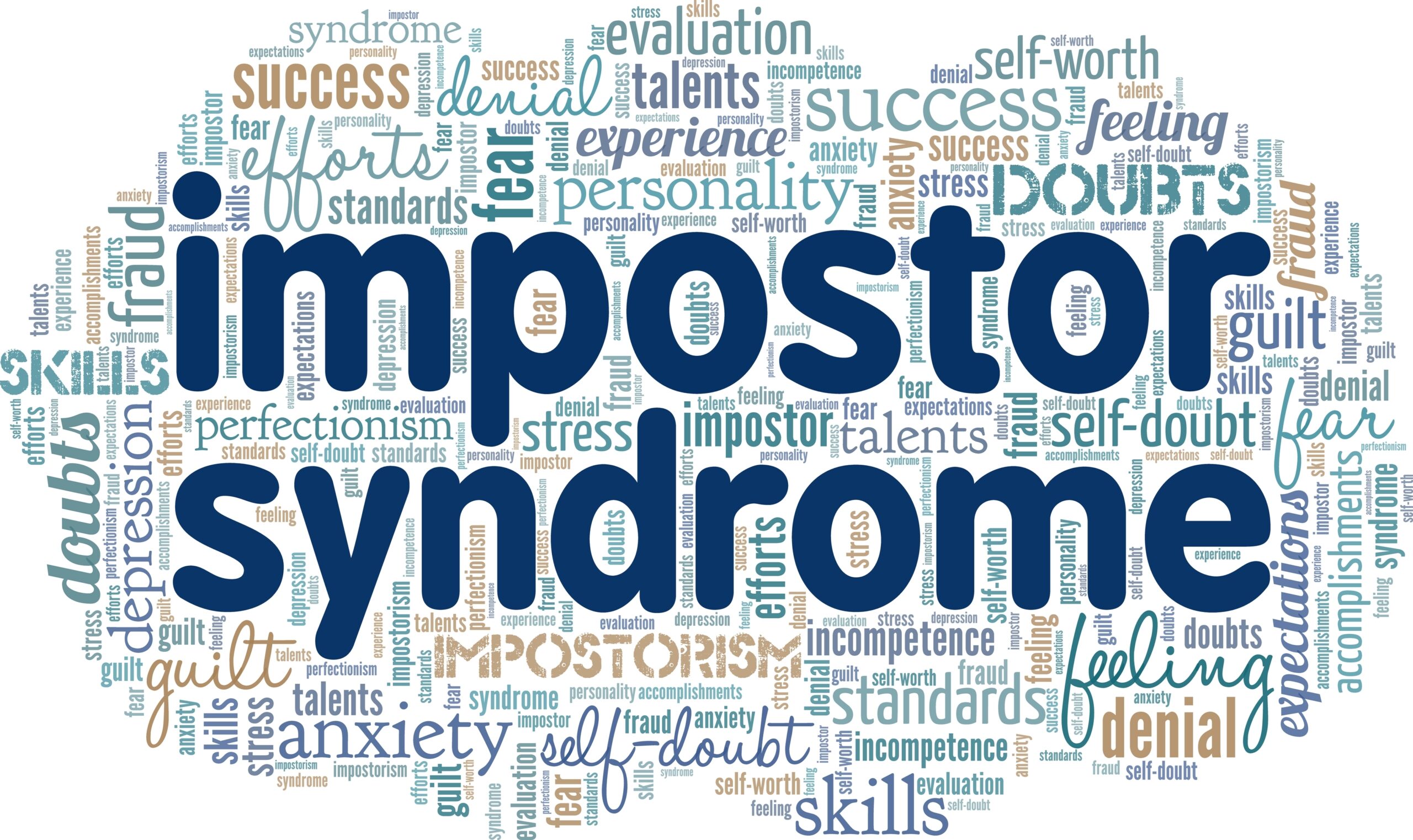


There can be many barriers to success in the workplace:
●An unsupportive boss.
●A dysfunctional team.
●A non-inclusive work environment.
However, the largest internal barrier to success for most high-achieving individuals is Imposter Syndrome.
Imposter Syndrome, or Imposter Phenomenon, is characterized by feelings of inadequacy and deficiency, where one views themselves as fraudulent or an “imposter.” Associated fears may center around being discovered as not worthy of accolades and awards being given. Often the person’s negative self-perceptions are misguided; their colleagues and supervisors have higher, positive views, seeing the individual as greater than they view themselves.
I would argue all high-achieving individuals can identify at least one, if not multiple, instances of self-doubt and low self-confidence in the span of their careers. But Imposter Syndrome is defined through repeated patterns of inner doubt and behaviors that prevent growth, development, and achievement.
As an example, one of my prior coaching clients first identified their feelings of imposterism as a medical student. This is very common—in fact, several studies show that over 70% of medical students identify with Imposter Syndrome above a moderate level.
The client started working with me after serving 10 years as an attending physician, at a time when they were being recommended for a Division Chief role. They had seen me give a talk on Imposter Syndrome and had recognized the tell-tale patterns in their own behavior:
●Not wanting to speak in meetings with hospital executives.
●Not wanting to agree with positive comments and acknowledgments given to them by other colleagues and leaders.
●Not wanting to advocate for fair compensation.
Excessive humility and low self-confidence were becoming barriers to my client’s accomplishment of professional as well as personal goals. Identifying their level of Imposter Syndrome was the first step in their coaching journey.
Identifying the level of Imposter Syndrome is key because it provides a starting point of the path to take with tackling Imposter Syndrome. Do you tackle it alone? Enlist the help of others? And if you enlist outside help, is that in the form of a coach or a licensed mental health professional?
The Clance Imposter Phenomenon Scale, developed in 1985, is the most common tool used to date to measure levels of Imposter Syndrome. (It can be taken here). The test consists of 20 statements for the test-taker to rate on a scale from 1–5 (from “not at all true” to “very true”), with the answers totaled into a cumulative score. The scoring matrix is as follows:
NONE to LOW = less than 40
MODERATE = 41–60
FREQUENT = 61–80
INTENSE = above 80Low levels of Imposter Syndrome can often be self-managed. This involves working through and finding the best individual strategy or set of strategies to cycle through feelings of imposterism, especially if those notions are impeding any type of goal completion. You can read more about some of these strategies here, or “subscribe” to my newsletter for more information here.
Moderate to Frequent levels of Imposter Syndrome may require more active intervention. This is when coaching can be very helpful. Coaching is a partnership between the coach and the client in a thought-provoking and creative process that inspires the client to maximize personal and professional potential. It is designed to facilitate the creation and development of personal, professional, or business goals and to develop and carry out a strategy and plan for achieving those goals.
Coaching can help provide the space and structure a person who is struggling with constant patterns of Imposter Syndrome needs to successfully combat them. An individualized plan will be created to identify the triggers of the associated feelings and target specific strategies to overcome the obstacles to goals.
Intense levels of Imposter Syndrome may be a sign of a larger psychological condition such as depression or anxiety. This is where consulting a licensed mental health professional would be most effective.
For more information, please contact me:
aashi@iriseexecutivecoaching.com
 Preparing to Step Into CEO Roles
May 30, 2023
Preparing to Step Into CEO Roles
May 30, 2023
 Tackle Imposter Syndrome by Prioritizing This Relationship
May 12, 2023
Tackle Imposter Syndrome by Prioritizing This Relationship
May 12, 2023
 Imposter Syndrome During a Job Transition
Jan 20, 2023
Imposter Syndrome During a Job Transition
Jan 20, 2023
 4 Strategies for A Successful Interview
Oct 19, 2022
4 Strategies for A Successful Interview
Oct 19, 2022
 Fighting Physician Burnout with Coaching
Sep 16, 2022
Fighting Physician Burnout with Coaching
Sep 16, 2022
Please subscribe to receive a pdf of 15 Ways to Tackle Imposter Syndrome
